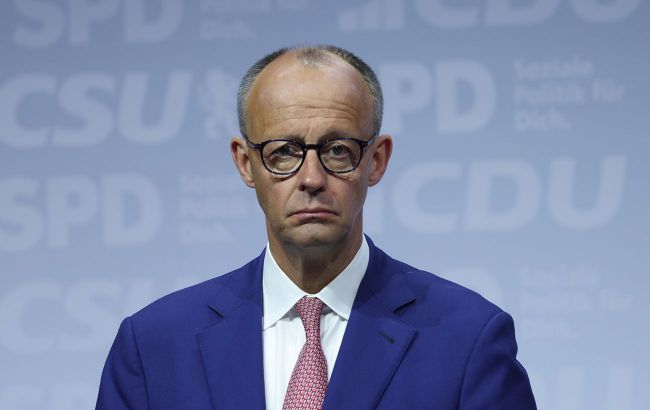Merz announces 18th sanctions package against Russia for tomorrow, urges US to join in
 Photo: German Chancellor Friedrich Merz (Getty Images)
Photo: German Chancellor Friedrich Merz (Getty Images)
The European Union will introduce a new, 18th sanctions package against Russia tomorrow, June 26. This is part of the program aimed at compelling the Kremlin to enter peace negotiations in Ukraine, according to a statement by German Chancellor Friedrich Merz at a press conference following the NATO summit in The Hague.
Merz stated that ending the war in Ukraine requires significantly increasing economic pressure on Russia. He called on the United States to join Europe in this effort.
"The EU is doing this, tomorrow, the 18th package of sanctions will finally be launched. But this alone will not be enough; we also need greater US participation in such sanctions," the chancellor emphasized.
Merz also said that in the coming days, the US Senate will vote on the Graham bill, which proposes sanctions against buyers of Russian energy resources.
According to the chancellor, during a meeting with US President Donald Trump on the sidelines of the summit in The Hague, he personally urged him to approve new restrictions against the Kremlin. Economic pressure, Merz believes, remains the only way to force Russia toward peace, as a military solution is unattainable.
"There will be no military solution to this conflict," the chancellor stressed.
Strengthening sanctions against Russia
EU countries expected the new sanctions package to be approved "this week," as European diplomats said on June 24. The only issue was the position of the governments of friends of the Russian President, Vladimir Putin — Viktor Orbán in Hungary and Robert Fico in Slovakia.
On June 23, Hungary’s Foreign Minister Péter Szijjártó hastily claimed that his country and Slovakia had allegedly blocked the adoption of the 18th sanctions package against Russia. However, on June 24, his Slovak counterpart Juraj Blanár stated that Slovakia would support the new sanctions, setting the condition that there be "guarantees" that the restrictions would not harm the Slovak economy.
Meanwhile, the US position remains unclear. Back in early April, Senator Lindsey Graham introduced a bill to impose tough sanctions on Russia for refusing a long-term peace with Ukraine. The bill primarily targeted not Russia itself but buyers of its main commodity — energy resources.
However, the White House repeatedly delayed advancing and passing this bill. In early June, media reports revealed that the Trump administration was dissatisfied with the Graham bill and asked the senator to significantly "soften the document."
Moreover, US Secretary of State Marco Rubio said President Donald Trump would not heed calls to tighten sanctions against Russia. He explained Trump’s position by saying Washington wants to keep the option open for "negotiations on a peace agreement."

